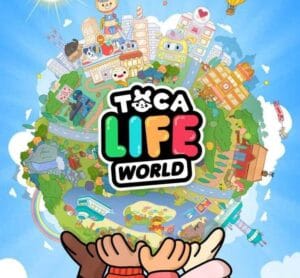Strategic Recalibration: Starbreeze Axes ‘Project Baxter’ and Lays Off Staff to Fuel Massive Payday Expansion
Popular Now
 Garena Free Fire: Kalahari
Garena Free Fire: Kalahari
 Call of Duty
Call of Duty
 Free Fire Max
Free Fire Max
 Fortnite
Fortnite
 Fall Guys
Fall Guys
 EA SPORT FC 25
EA SPORT FC 25
 The Legend of Zelda
The Legend of Zelda
 Auto X Drift Racing 3
Auto X Drift Racing 3
 Grand Theft Auto V
Grand Theft Auto V
 Free Fire
Free Fire 
Stockholm, Sweden – Starbreeze Studios, the developer behind the globally recognized co-op franchise Payday, has announced a dramatic and difficult strategic pivot, confirming the cancellation of its highly anticipated Dungeons & Dragons cooperative project, codenamed Project Baxter. This decision, following a comprehensive internal review by the company’s Board of Directors and management, has been accompanied by a workforce reduction affecting approximately 44 full-time employees and contractors. The move is an aggressive realignment of corporate resources, focusing all core investment and talent on accelerating the growth and content delivery pipeline for the flagship Payday intellectual property (IP).
CEO Adolf Kristjansson framed the decision as a “difficult but necessary” step to ensure the long-term viability and growth of the studio. The new strategy is unequivocally centered on dominating the heisting genre, a niche Starbreeze largely pioneered. The cancellation of the ambitious Games as a Service (GaaS) D&D title, which was slated for a 2026 release utilizing Unreal Engine 5, results in a non-cash impairment of approximately SEK 255 million (around $27.2 million USD) in the third quarter of 2025. This significant write-down underscores the severity of the commitment to their new, singular focus.
This news arrives at a critical juncture for Starbreeze, which has been intensely focused on revitalizing the Payday 3 experience following its challenging launch period. The strategic shift is designed to deliver greater shareholder value and a more robust, content-rich experience for the millions of players engaged in the Payday ecosystem.
 The Cost of Focus: Layoffs and the End of the D&D Dream
The Cost of Focus: Layoffs and the End of the D&D Dream
The shelving of Project Baxter represents more than just a financial write-off; it is a profound setback for the employees who invested their time and creativity into the fantasy co-op venture. The confirmed layoff of around 44 staff members is a stark reminder of the tumultuous nature of the video game development industry, especially in the competitive GaaS space. Starbreeze stated that where internal opportunities were limited, they would provide active support for affected individuals to transition into new roles across the wider industry.
Impact of the Strategic Pivot:
- Workforce Reduction: Approximately 44 full-time staff and contractors from the Project Baxter team are being laid off, with some specialists being redeployed internally to work on the Payday franchise.
- Financial Write-Off: A non-cash impairment of SEK 255 million (approx. $27.2 million) is recorded, reflecting the investment sunk into the cancelled Dungeons & Dragons title’s development.
- Cash Flow Target: Starbreeze management projects that the reduced cost base and intensified focus will enable the company to become cash-flow positive in 2026.
The company acknowledged the strong potential of the Dungeons & Dragons IP, expressing appreciation to Wizards of the Coast for their support. However, the internal assessment concluded that launching a new, high-stakes GaaS product in a genre outside their core competency was an unnecessary risk when juxtaposed with the proven revenue generation and global reach of the Payday franchise, which boasts over 50 million players worldwide and nearly SEK 4 billion in lifetime gross revenue.
 Doubling Down on the Heist: The Future of Payday
Doubling Down on the Heist: The Future of Payday
The strategic reorientation positions Payday as the sole Growth Platform for Starbreeze. This commitment is not merely to sustain the existing games but to dramatically accelerate the content roadmap for Payday 3 and expand the entire concept of the “heisting genre.” The studio’s goal is to transform Payday 3 into a truly modern and scalable Live-Engagement Platform capable of retaining and attracting millions of players globally.
Key Pillars of the New Payday-Centric Strategy:
- Accelerated Content Delivery: With a significant portion of the Baxter development resources being reallocated, Starbreeze can now deliver more frequent updates, new heists, and continuous live-engagement to the existing community. This addresses long-standing complaints about Payday 3’s post-launch content drought.
- Team Expansion: The Payday 3 development team is slated for expansion, with a target of growing to around 50 employees before the end of 2025. This hiring and internal redeployment is crucial for sustaining a rapid Content Schedule.
- Genre Expansion: Starbreeze plans to utilize its expertise to develop new “Heisting Experiences” that broaden the franchise beyond the core first-person shooter (FPS) format. These include potential spin-offs and narrative-driven projects, suggesting an ambition to leverage the brand for wider Gaming Market appeal.
- Technology Upgrades: A continuous commitment to technology upgrades and refinements is planned for Payday 3, ensuring that the title evolves to meet modern standards for co-op multiplayer games and remains a compelling choice in the highly competitive FPS space.
The emphasis on making Payday 3 a more engaging and modern Live Service Game is a direct response to the community’s mixed reaction following its release, a situation exacerbated by the continued, disproportionate popularity of the decade-old Payday 2. By consolidating all efforts, Starbreeze aims to stabilize its core IP, attract a high Player Retention Rate, and secure its financial future through a proven Monetization Strategy centered on content and engagement.
The Larger Context: Risk Aversion in the GaaS Market
Starbreeze’s decision is highly indicative of a broader industry trend: a widespread pivot toward risk aversion in the volatile Games as a Service market. The financial landscape of 2025 has seen numerous major publishers, including industry titans, cancel unreleased projects to consolidate resources on proven, core franchises. The enormous upfront investment and high operational cost of launching a brand-new GaaS title, especially in a new genre like fantasy co-op, carries an untenable level of risk for a mid-sized studio like Starbreeze.
Market Dynamics Influencing the Decision:
- High Barrier to Entry: The market is saturated with established live service competitors. Launching a new IP, even one tied to the respected Dungeons & Dragons brand, requires a massive, sustained Marketing Budget and flawless execution to compete.
- Investor Pressure: Following the acquisition of the Payday 3 publishing rights, the focus from Shareholders is squarely on maximizing the return on their most reliable asset—Payday. The clear, singular focus is a measure to restore investor confidence and stabilize the stock price.
- Internal Resource Strain: Maintaining two distinct GaaS development pipelines—one for the struggling Payday 3 and another for the new Baxter project—was likely overstretching the studio’s talent and capital, a common failure point for many mid-tier developers.
The strategic move is a clear, if brutal, example of disciplined portfolio management. By shedding the unproven, high-risk Project Baxter, Starbreeze is investing its most valuable asset—its development team’s expertise in cooperative heisting—into the most financially rewarding path available. This concentration of Talent and Capital is their best chance to cement their status as the definitive leader in the heisting genre and achieve their critical goal of cash-flow positivity in the coming year, providing a valuable case study in Corporate Strategy for the global Gaming Industry.










 The Cost of Focus: Layoffs and the End of the D&D Dream
The Cost of Focus: Layoffs and the End of the D&D Dream Doubling Down on the Heist: The Future of Payday
Doubling Down on the Heist: The Future of Payday